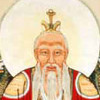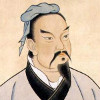“ Too frequent rewards signify that the enemy is at the end of his resources; too many punishments betray a condition of dire distress. ”
Sun Tzu, The Art of War (5th century BC). copy citation
| Author | Sun Tzu |
|---|---|
| Source | The Art of War |
| Topic | punishment distress |
| Date | 5th century BC |
| Language | English |
| Reference | |
| Note | Translated by Lionel Giles |
| Weblink | http://www.gutenberg.org/files/17405/17405-h/17405-h.htm |
Context
“When an army feeds its horses with grain and kills its cattle for food, and when the men do not hang their cooking-pots over the camp-fires, showing that they will not return to their tents, you may know that they are determined to fight to the death.
35. The sight of men whispering together in small knots or speaking in subdued tones points to disaffection amongst the rank and file.
36. Too frequent rewards signify that the enemy is at the end of his resources; too many punishments betray a condition of dire distress. 37. To begin by bluster, but afterwards to take fright at the enemy's numbers, shows a supreme lack of intelligence.
38. When envoys are sent with compliments in their mouths, it is a sign that the enemy wishes for a truce.
” source
35. The sight of men whispering together in small knots or speaking in subdued tones points to disaffection amongst the rank and file.
36. Too frequent rewards signify that the enemy is at the end of his resources; too many punishments betray a condition of dire distress. 37. To begin by bluster, but afterwards to take fright at the enemy's numbers, shows a supreme lack of intelligence.
38. When envoys are sent with compliments in their mouths, it is a sign that the enemy wishes for a truce.
” source


